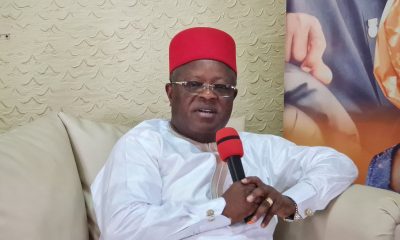Business
Microsoft Translator adds Hausa, Igbo, Yoruba, 10 other African languages
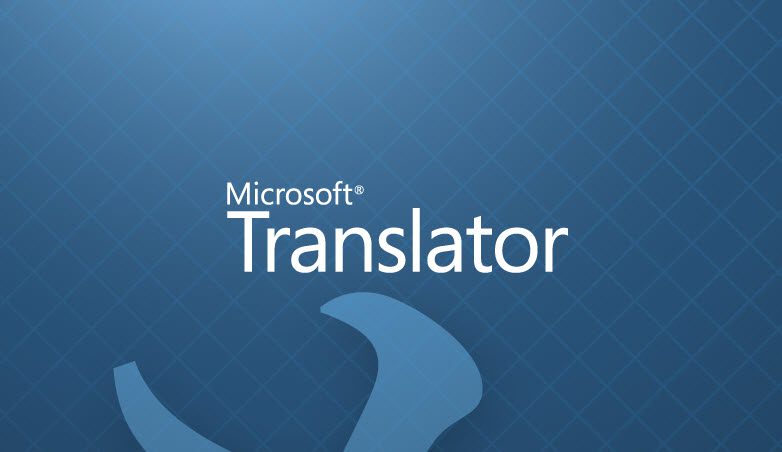
Microsoft has added three Nigerian languages (Hausa, Igbo and Yoruba) to its Microsoft Azure Cognitive Services Translator.
They are part of 10 new African languages just launched on the Microsoft Translator.
This enables text and documents to be translated to and from these languages across the entire Microsoft ecosystem of products and services.
This is coming after last year’s release of Somali and Zulu, according to a statement.
It lists the latest African languages to be supported as chiShona, Hausa, Igbo, Kinyarwanda, Lingala, Luganda, Nyanja, Rundi, Sesotho, Sesotho sa Leboa, Setswana, Xhosa and Yoruba.
This brings the total number of supported languages to 124 and adds language support for millions of people in Africa and worldwide.
Ola Williams, Country Manager, Microsoft Nigeria, says, “It is so powerful to be able to access knowledge and learn in one’s own language. The addition of Hausa, Igbo and Yoruba builds on the ongoing work Microsoft is undertaking in Nigeria to empower our communities with access to content in indigenous languages. Through this release we continue to build meaningful cognitive products and services that improve accessibility and break down the language barrier between people and cultures across Nigeria and Africa.”
It also notes that integrations across Microsoft’s ecosystem include Microsoft 365 for translating text and documents, the Microsoft Edge browser and Bing search engine for translating whole webpages, SwiftKey for translating messages, LinkedIn for translating user-submitted content, and the Translator app for having multilingual conversations on the move, among others.
It also says in the statement that using Translator, people and organisations could add African languages’ text translation to apps, websites, workflows, and tools; or use Translator’s Document Translation feature to translate entire documents, or volumes of documents, in a variety of different file formats preserving their original formatting.
They can also use Translator with Cognitive Services such as Speech or Computer Vision to add additional capabilities such as speech-to-text and image translation into their apps. Educators can create a more inclusive classroom for both students and parents with live captioning and cross-language understanding.
Microsoft has continuously added languages and dialects to its Translator service while ensuring the translation quality of the supported languages by using the latest neural machine translation (NMT) techniques.
The company, through its Microsoft Research unit, first developed machine translation systems more than a decade ago – and has consistently built on and improved these systems and techniques, adopting NMT technology as Artificial Intelligence (AI) evolved and migrating all machine translation systems to neural models to improve translation fluency and accuracy.
According to the firm, working with partners in language communities who can help gather data for specific languages and who have access to human-translated texts also helps to overcome the challenge of obtaining enough bilingual data to train and produce a machine translation model. This network of partners help collect bilingual data, consult with community members and evaluate the quality of the resulting machine translation models.
It notes that these ever-improving capabilities make it possible for businesses to expand their global reach, enabling them to communicate with customers and partners across languages and localise content and apps quickly, reliably, and affordably.
“Language should never be a barrier to using technology. With the addition of new African languages, more people and businesses will be enabled to connect across languages seamlessly,” says Williams.
It also says there are plans to add more of the continent’s most widely spoken languages as part of Microsoft’s mission to build meaningful cognitive products and services that improve accessibility and local engagement.
Business
I’m honoured, excited over World Bank’s appointment – Dangote
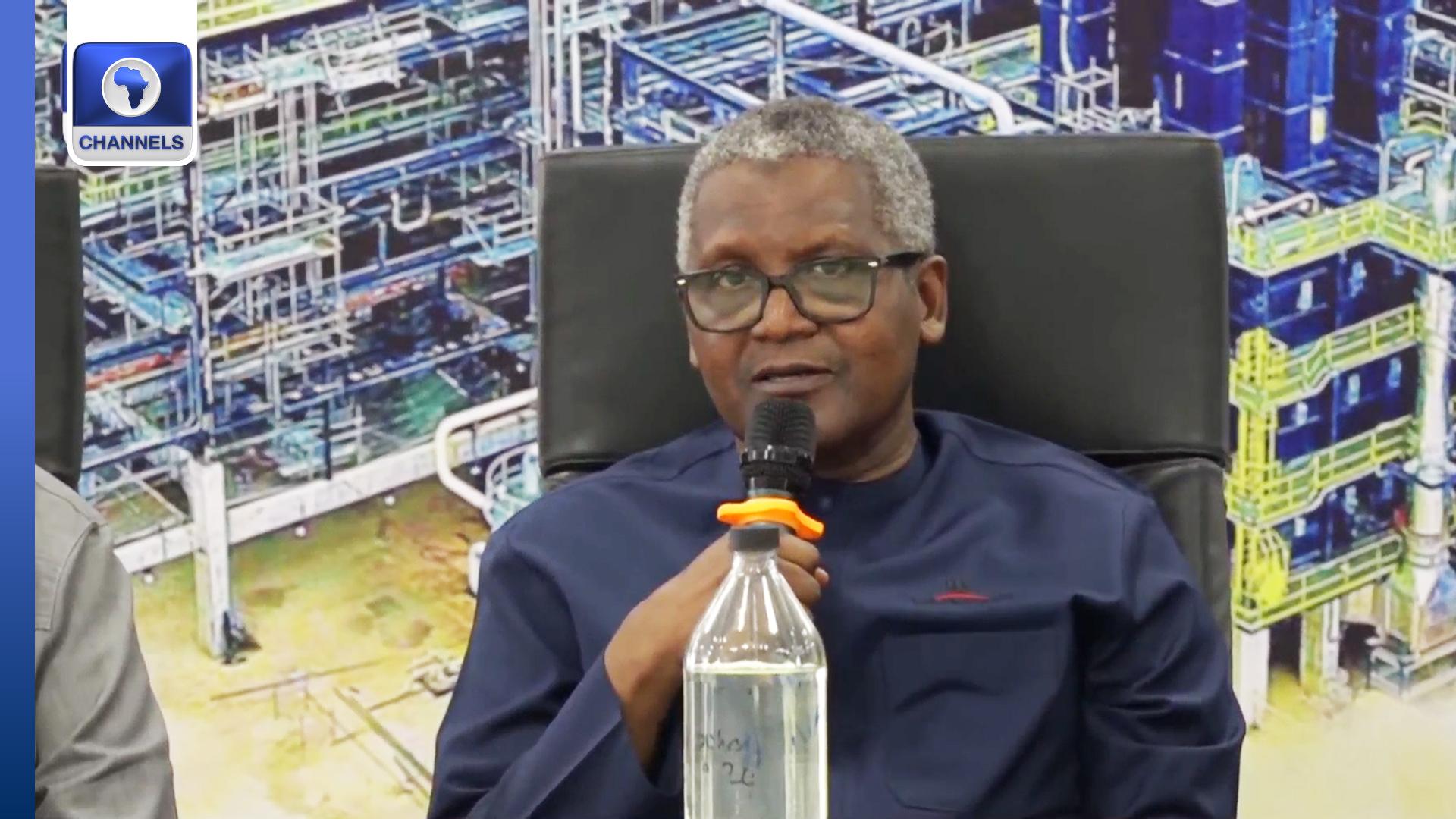
I’m honoured, excited over World Bank’s appointment – Dangote
President and CEO of Dangote Group, Aliko Dangote, has expressed gratitude following his appointment to the World Bank’s Private Sector Investment Lab, a global initiative aimed at accelerating private investment and job creation in emerging economies.
In a statement confirming the development, Dangote described the appointment as both an honour and a reflection of his long-standing commitment to economic development through private enterprise.
“I am both honoured and excited to accept my appointment to the World Bank’s Private Sector Investment Lab, dedicated to advancing investment and employment in emerging economies,” Dangote said.
“This opportunity aligns with my long-standing commitment to sustainable development and unlocking the potential of developing economies.”
He referenced the successes of the so-called Asian Tigers, economies that experienced rapid growth through strategic investment, as a source of inspiration for advancing similar outcomes in other parts of the world.
The World Bank announced Dangote’s inclusion on Wednesday as part of a broader expansion of the Lab, which enters a new phase focused on scaling up solutions that attract private capital and generate employment in developing countries.
Other newly appointed members include Bill Anderson, CEO of Bayer AG; Sunil Bharti Mittal, Chairman of Bharti Enterprises; and Mark Hoplamazian, President and CEO of Hyatt Hotels Corporation.
READ ALSO:
- Akpabio to represent Tinubu at Pope Francis funeral
- PDP will come out stronger, Saraki reacts to Okowa, Delta gov defection
- Countries eligible to enter US without visas for 90days (full list)
World Bank Group President Ajay Banga noted that the expanded membership underscores the institution’s focus on integrating private-sector leadership into its strategy for global job creation.
“With the expanded membership, we are mainstreaming this work across our operations and tying it directly to the jobs agenda that is driving our strategy,” Banga said.
“This isn’t about altruism—it’s about helping the private sector see a path to investments that will deliver returns, and lift people and economies alike. It’s central to our mandate.”
The lab, which was co-chaired in 2023 by Canadian Prime Minister Mark Carney, previously sought to mobilise £1 trillion in sustainable investment, particularly targeting energy transition projects in emerging markets.
Aviation
Air Peace suspends flights nationwide over NiMet strike
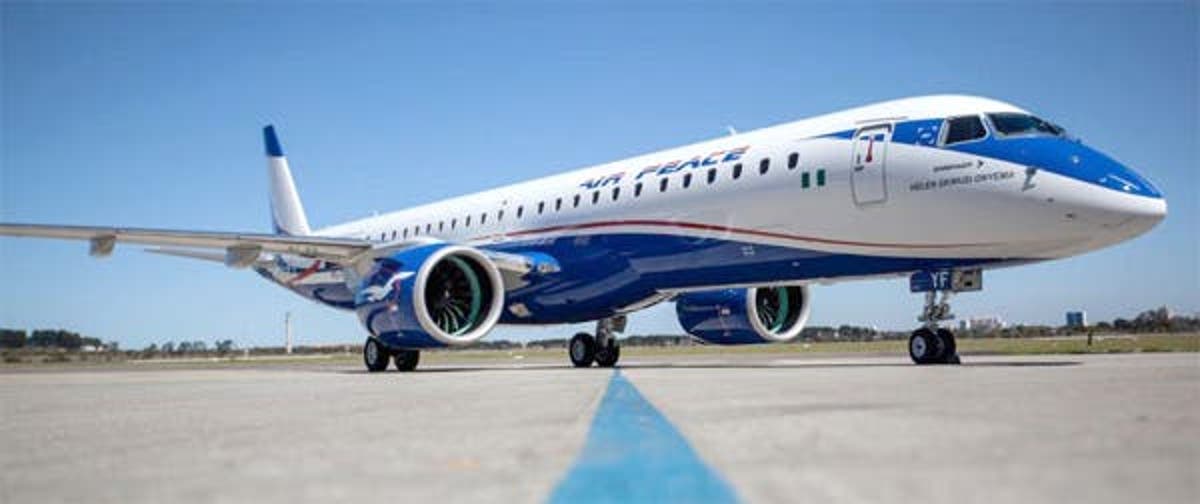
Air Peace suspends flights nationwide over NiMet strike
Air Peace has suspended all its flight operations across the country due to the ongoing strike by the Nigerian Meteorological Agency (NiMet).
The airline said in a statement on Wednesday that it was also suspending operations due to the unavailability of QNH (hazardous weather) reports required for safe landings.
“Due to the ongoing NiMet strike and the unavailability of QNH (hazardous weather) reports required for safe landings, Air Peace has suspended all flight operations nationwide until the strike is over,” Air Peace said.
“Your safety is our top priority. We appreciate your understanding and will share updates as the situation unfolds.”
The airline had earlier announced that the NiMet strike could lead to flight delays and cancellations across its network.
Air Peace added that it was monitoring the situation and working with relevant stakeholders to minimise the impact on customers’ travel plans.
Employees of NiMet commenced a nationwide indefinite strike over welfare issues on Wednesday.
Some of the issues raised involve “NiMet’s refusal to negotiate or implement agreed financial allowances and unresolved entitlements,” including wage awards, peculiar allowances, and outstanding payments from the 2019 minimum wage.
They also accused the management of the agency of withholding important documents, ignoring requests for inclusion of omitted staff in past payments, and neglecting key training programmes in favour of executive retreats.
Business
Nigeria’s gas production increases by 15.6% to 227,931.65 mscf

Nigeria’s gas production increases by 15.6% to 227,931.65 mscf
Nigeria’s gas output has increased 15,6 percent month-on-month, MoM, to 227,931.65 million standard cubic feet, mscf, in March 2025.
But on year-on-year, YoY basis, the nation’s gas output recorded a marginal increase to 227,931.65 mscf in March 2025, from 198,353.62 mscf, recorded in the corresponding period of 2024.
Data obtained from the Nigerian Upstream Petroleum Regulatory Commission, NUPRC, Gas Production Status reports indicated that of the total of 227,931.65 mscf produced in March 2025, 119,552.75 mscf was associated while 108,378.90 mscf was non-associated gas.
Associated gas is extracted in the process of producing crude oil while non-associated gas is produced without crude oil after much investment, exploration and development.
The Ministry of Petroleum Resources (Gas), which is directly involved in the development of policies, targeted at increasing investment in the sector said efforts have been made to increase investment and production of gas in Nigeria.
Similarly, in its recent report obtained by Vanguard, the Nigerian LNG Limited stated: “We are fully committed to expanding our operations with the NLNG Train 7 Project, which will boost our production capacity by 35%, increasing from 22 Million Tonnes Per Annum (mtpa) to 30 mtpa. This project underscores our role as a key player in the global LNG market and positions Nigeria as a top-tier supplier of LNG, leveraging its vast proven gas reserves of 202 trillion cubic feet (the 9th largest globally).
Vanguard
-

 metro6 hours ago
metro6 hours agoTruck falls from Lagos bridge on two buses
-

 metro2 days ago
metro2 days agoOmokri : How Tinubu’s political mastery started with Abiola, says El-Rufai, Obi’s forces can’t stop him
-

 Education1 day ago
Education1 day agoJAMB officials seize candidates’ hijab at Caleb varsity, Muslim students kick
-

 Entertainment3 days ago
Entertainment3 days agoP-Square: Jude Okoye freed after two months detention
-

 International1 day ago
International1 day agoUS releases 41 countries granted 90-day entry without visas (full list)
-
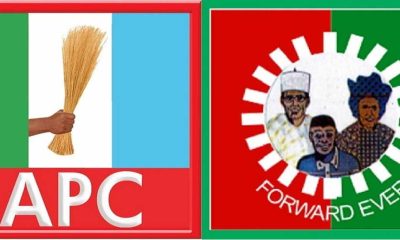
 Politics3 days ago
Politics3 days agoLabour Party collapses into APC in Plateau
-

 metro2 days ago
metro2 days agoGroom cancels wedding, marries another lady same date, venue
-

 metro16 hours ago
metro16 hours agoEFCC declares four persons wanted over CBEX scam









